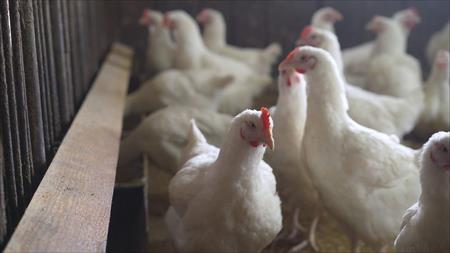US Confirms Highly Pathogenic Avian Flu In Nebraska Dairy Herd
In a statement, the USDA said on Monday that the confirmed strain is H5N1 clade 2.3.4.4b, genotype B3.13. The case was detected through state-led tracing and investigation following an initial finding from pre-movement surveillance milk samples, which are required under a federal order issued by the USDA in April 2024.
This marks the first known case of HPAI in cattle in Nebraska. Since the outbreak began in March 2024, dairy cattle infections have been reported in 17 states, though the USDA's Animal and Plant Health Inspection Service (APHIS) noted that cases have remained confined to a small number of states this year.
APHIS said it is working closely with the Nebraska Department of Agriculture to conduct additional on-farm investigation, testing and gathering of additional epidemiological information to better understand this detection and prevent further spread of the disease. The agency also urged all dairy farms to strengthen biosecurity measures, especially as the fall migratory bird season approaches.
There is no concern that this circumstance poses a risk to consumer health or that it affects the safety of the commercial milk supply, said the USDA, Xinhua news agency reported.
The US Food and Drug Administration (FDA) has confirmed that pasteurisation is effective at inactivating H5N1, ensuring the safety of pasteurised milk products.
The US Centres for Disease Control and Prevention (CDC) said that H5N1 viruses circulating in birds and US dairy cattle are believed to pose a low risk to the general public in the United States, but warned that individuals with occupational or recreational exposure to infected birds or mammals are at higher risk and should take appropriate precautions.
Highly pathogenic avian influenza (HPAI) is a highly contagious transboundary disease with zoonotic potential affecting both animal and human health. It causes variable clinical signs and high mortality rates in both wild and domestic bird populations. Current H5 AI outbreaks have severely impacted countries globally, causing losses of rare and important wild bird species, as well as significant social and economic costs, including livelihood losses and egg shortages.
The spread of HPAI also strains poultry-related businesses, as measures such as culling and movement restrictions are necessary to contain the virus, which can disrupt the trade of poultry products. The ongoing devastation highlights the urgent need for improved control measures to prevent spillover and viral changes that could lead to a global pandemic. HPAI also infects mammals and humans, posing serious public health risks. Infected mammals include domestic cats, cattle, and wild animals such as foxes and seals, with human cases, although rare, occurring in those with close contact with infected poultry or environments.

Legal Disclaimer:
MENAFN provides the
information “as is” without warranty of any kind. We do not accept
any responsibility or liability for the accuracy, content, images,
videos, licenses, completeness, legality, or reliability of the information
contained in this article. If you have any complaints or copyright
issues related to this article, kindly contact the provider above.
Most popular stories
Market Research

- Bitmex And Tradingview Announce Trading Campaign, Offering 100,000 USDT In Rewards And More
- Japan Halal Food Market Size To Surpass USD 323.6 Billion By 2033 With A CAGR Of 8.1%
- Chicago Clearing Corporation And Taxtec Announce Strategic Partnership
- Red Lions Capital And Neovision Launch DIP.Market Following ADGM Regulatory Notification
- Poppy Seed Market Size, Share, In-Depth Insights, Opportunity And Forecast 2025-2033
- Pluscapital Advisor Empowers Traders To Master Global Markets Around The Clock






















Comments
No comment